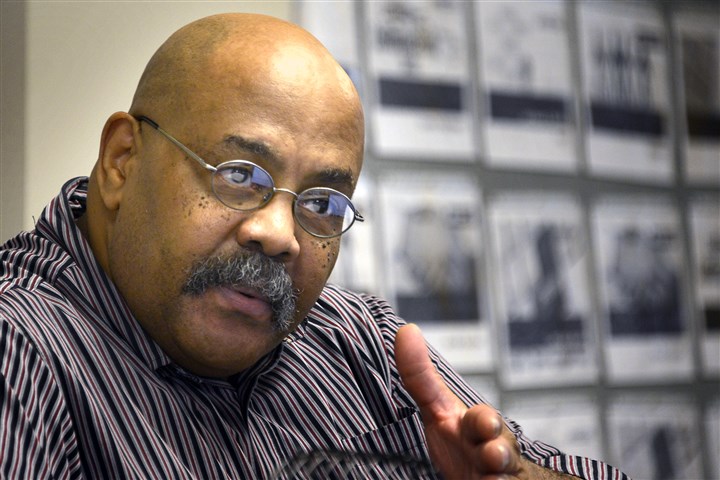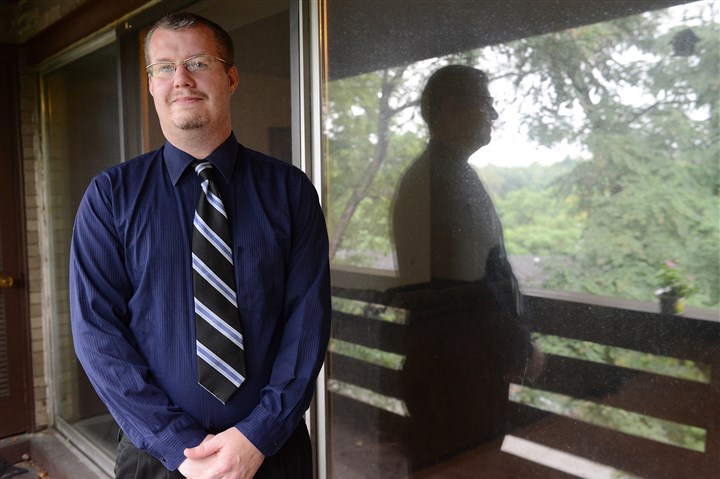They help people to work for the well-prepared
22 August 2016 00:00It's just after 8:30 one day last week, and in the middle of a room next to the office help Allegheny County, the session of the day started in the type of job search Howard Williams.
No motivation slogans are written on pieces of paper stuck in the gray walls: "We can not can explain success without U."
"That some achieve great success, is proof of everything that others can achieve it."
"You must learn to listen and to learn to listen."
'Mr. Class Howard '
Many students of Williams are there because they receive temporary assistance for needy families - as cash benefits, or known wellbeing.
Many fewer people receiving social assistance today than when welfare reform was adopted in 1996. Pennsylvania, just over 531,000 people received welfare in August 1996, signed as President Bill Clinton the draft reform legislation. In June had 158,000 fewer Pennsylvania TANF recipients, representing a decrease of about 70 percent.
Those subsidies are obtained required to attend such courses for at least 20 hours per week.
Back in the class of Mr. Williams, students go around the room and indicate their name and the type of work you are looking for - something in the field of medicine, "help something that can pay my bills," by hospitality means a working home care.
The class is called accumulate. which means employment, promote and retain network.
Classes are conducted by the ICAS, a contractor based for-profit in Michigan, specializes recipients and other unemployed or economic disadvantages in placing TANF.
The recipients are evaluated by the county assistance office; with previous work history is sent to the program to win and those who have no work experience, are sent to another program, said Jonathan Walkush, head of the planning and operation in the Department of Allegheny County People Desk employment training.
Despite opaque bureaucratic framework, Williams sociable and energetic as a television or AM radio DJ and fervor of a preacher. his presentation with silly voices and sound effects music as a bell and "Jeopardy!" stresses theme song. If a student said he seeks employment in the food industry, he joked: "I'm in the food industry."
He describes himself as "Mr. Howard," as in "we are not talking about minimum wage in the class of Mr. Howard."
But self-deprecating under Mr. Williams and manager jokes, former staff, it has a lot of good advice for your students - or anyone looking for work. Be polite. Be on time. Be prepared. Be positive. Be professional.
During the morning progresses, they studied how to treat many sensitive issues - that should tell if a potential employer asks about child care arrangements? What if they ask if you already submitted an application for workers? What if they ask if you have ever been arrested? As we talk about the amount of money to be made? What can a former employer say about you?
Mr. Williams is a true believer - "It works," he said. "We help people transition from welfare to work really."
At several points in the class, which he refers received from former students who landed high-paying, jobs sitting on a pile on your desk on the notes of thanks.
"I do not work for money," he said. "I work for thank you cards."
"She just wanted to help '
One of the successes of WIN Jon Magistri program.
He had jobs before fast food, but his conviction in 2006 on charges of inciting makes it difficult to read a single mother of two, to find a good job.
"I truly believe that as a recording with really hurts," he said.
Cash was in 2014 and declared WIN instructors helped asked to develop a resume, connected to the employers who were willing to hire someone with a criminal record, and helped on the way to his conviction to speak with prospective employers.
"She tells how to approach, how to speak before, was about his past, this kind of thing," he said.
"She just wanted to help," he said.
The 31-year-old Versailles was promoted at work several times and is now a forklift operator in a warehouse. Last year, at a banquet in Hershey, the award for the success of the Governor Award of Excellence.
"Would definitely helped cash assistance and food stamps in total," he said.
"A chair '
now get the chance students is Yonek Kimberly, 24, of Wilkinsburg. Woman Yonek has since November been aid to cash. They, like the other students in her class, had prior jobs. But between the rent and care for her daughter 3½ years, the work of telemarketing that before that for a short time was left much to finish.
He said he he feels much has learned from this class that for 20 hours a week to attend to the job is to get cash aid.
For example, he said, now known as a potential employer call to review an application, but simply tested in the application, but to say: "When would you like to come easily for me, for an interview?" This difference subtle but significant helped his job interviews land would not be acquired in advance, he said.
"Mr Howard Class my favorite part of the program is," he said.
Cases like Mr. and Mrs. Magistri of Yonek exactly what the well-being many reformers imagined when she before, the program checks from benefits 20 years: Someone who needs the program for a short time, then go on a job full time.
"It is like a ladder. You do not want to be comfortable with it, but want to use it to go anywhere," Mrs. Yonek describes to get his attitude TANF, the famous rhetoric Clinton said echo of welfare should "up hands, which is "to be a document.
But critics say states, including Pennsylvania, a poor job making tracking whether Mrs Yonek and his companions will be able actually made the move with better jobs away program to keep long term. State data indicates that only about 22 percent of people TANF leave because leaving employment.
A recent report of the Community of Philadelphia in Pennsylvania Legal Services program is part of the welfare to work program criticized as having "little ability to prepare parents for the preservation of the family."
In the last three years 2,618 people enrolled in the WIN Allegheny County program. Of these 1,019 were "successful investment" have been - that means working 20 hours or more per week, and maintenance of employment for at least four consecutive weeks, according to county statistics.
"People move from welfare to work is a good thing. But we are now at 51 percent of the people to leave again in a year's employment," Human Services Secretary Pennsylvania Ted Dallas said, reflect the fact that many of them in employment of low-wage service sector are placed that are somewhat economically precarious. He said the ministry is more performance-based contracts with providers offer to pay for better results.
"The people the expression to work on welfare, but we need to move to self-sufficiency," Dallas said.
Kate Giammarise: kgiammarise@post-gazette.com or 412-263-3909 or Twitter @KateGiammarise.





No comments:
Post a Comment